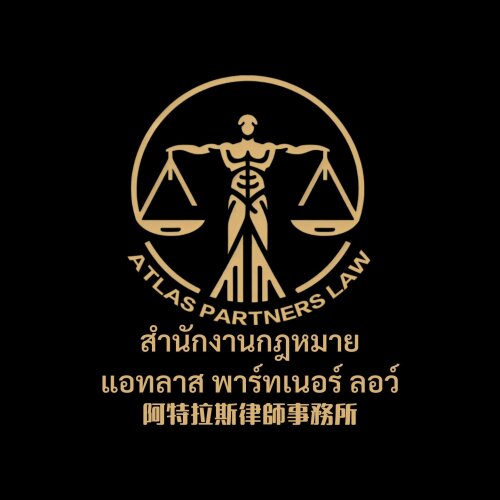About Contract Law in Chiang Mai, Thailand
Contract law in Chiang Mai, Thailand, is governed by the Civil and Commercial Code of Thailand. Contracts are essential for business transactions, personal agreements, and a variety of other engagements. In Chiang Mai, as in other parts of Thailand, a contract is considered legally binding if it arises from a mutual agreement between parties who intend to create legal obligations, provided the agreement does not violate any laws or regulations. Contracts may be oral or written, but written contracts are generally recommended for clarity and enforceability.
Why You May Need a Lawyer
Understanding the intricacies of contract law can be challenging without legal assistance. Here are common situations where you might need a lawyer:
You are drafting or reviewing a business contract and need to understand the implications of its terms and conditions.
You face a breach of contract situation and need legal advice on how to enforce the contract or seek compensation.
You are involved in negotiations and require legal expertise to ensure your interests are adequately protected.
You need assistance with contract disputes or mediation with the other party involved in the contract.
You want to ensure your contracts comply with Thai laws and regulations to avoid future legal issues.
Local Laws Overview
Chiang Mai, being a part of Thailand, adheres to the national legal framework for contract law contained within the Civil and Commercial Code. Key aspects to consider include:
Validity: A valid contract requires an offer, acceptance, consideration, and legal purpose.
Written Contracts: While oral contracts can be valid, certain contracts, such as those involving land or loans, must be in writing.
Performance: Contracts must be performed as agreed. Any deviation might lead to breach of contract claims.
Remedies for Breach: Remedies may include damages, specific performance, contract rescission, or restitution, depending on the case specifics.
Statute of Limitations: The period for filing a lawsuit based on breach of contract typically varies depending on the contract type.
Frequently Asked Questions
What constitutes a legally binding contract in Chiang Mai?
A legally binding contract in Chiang Mai requires an offer, acceptance of that offer, consideration exchanged between parties, and a legal intent to bind the parties to the terms of the agreement.
Can an oral contract be enforced in Chiang Mai?
Yes, oral contracts can be enforced; however, for certain types of agreements (such as contracts of sale involving property), written documentation is legally required.
What should I include when drafting a contract?
Ensure your contract includes clear terms regarding the parties involved, responsibilities, timelines, payment terms, conditions for termination, and dispute resolution processes.
Is it necessary to hire a lawyer for small contracts?
While not mandatory, hiring a lawyer can be beneficial to ensure all legal aspects are covered and to avoid potential disputes later on.
What happens if a contract is breached?
If a contract is breached, the non-breaching party may seek legal remedies, including damages, specific performance, or canceling the contract.
How can I prove a verbal agreement in court?
Proving a verbal agreement can be challenging. Evidence such as witness testimony, prior conduct of the parties, and any related documentation can help support your claim.
Can contract terms be modified after signing?
Yes, but it requires mutual consent from all parties involved. It’s recommended to document any modifications in writing.
Are contracts with minors enforceable in Thailand?
Contracts with minors are generally voidable, meaning they can be invalidated by the minor unless parental or guardian consent is obtained.
What is a force majeure clause?
A force majeure clause excuses a party from fulfilling contractual obligations due to unforeseeable events beyond their control, such as natural disasters or war.
Can a contract expire, or do they remain enforceable indefinitely?
Contracts can have expiration dates, specified within the contract terms. If no expiry is specified, they remain valid until the obligations are fulfilled or discharged.
Additional Resources
For more assistance, consider reaching out to the following resources:
The Lawyers Council of Thailand: Offers listings and contact details for registered legal professionals.
Chiang Mai Legal Aid: Provides free or low-cost legal services for those eligible based on need.
Office of the Judiciary: Offers details on court procedures and legal guidelines.
Chiang Mai University Faculty of Law: They may offer legal clinics providing advice from law students under supervision.
Next Steps
If you need legal assistance regarding contracts in Chiang Mai, consider taking the following steps:
Identify whether your issue requires professional legal help or if it can be resolved through mediation or negotiation.
Consult with a qualified lawyer who specializes in contract law in Thailand to understand your position and get tailored advice.
Prepare all relevant documents, including any written or verbal agreements, communications, and context surrounding the contract.
Set a clear objective for your legal engagement, such as contract enforcement, dispute resolution, or contract drafting/review.
Lawzana helps you find the best lawyers and law firms in Chiang Mai through a curated and pre-screened list of qualified legal professionals. Our platform offers rankings and detailed profiles of attorneys and law firms, allowing you to compare based on practice areas, including Contract, experience, and client feedback.
Each profile includes a description of the firm's areas of practice, client reviews, team members and partners, year of establishment, spoken languages, office locations, contact information, social media presence, and any published articles or resources. Most firms on our platform speak English and are experienced in both local and international legal matters.
Get a quote from top-rated law firms in Chiang Mai, Thailand — quickly, securely, and without unnecessary hassle.
Disclaimer:
The information provided on this page is for general informational purposes only and does not constitute legal advice. While we strive to ensure the accuracy and relevance of the content, legal information may change over time, and interpretations of the law can vary. You should always consult with a qualified legal professional for advice specific to your situation.
We disclaim all liability for actions taken or not taken based on the content of this page. If you believe any information is incorrect or outdated, please contact us, and we will review and update it where appropriate.

















